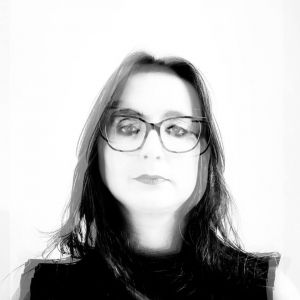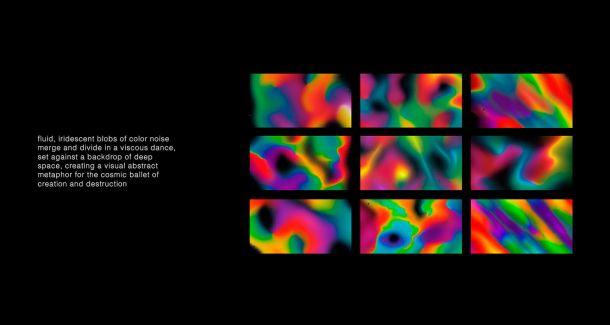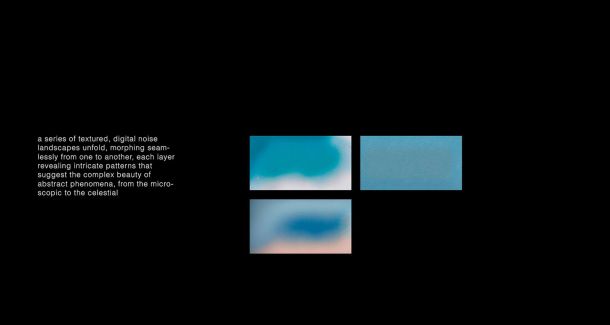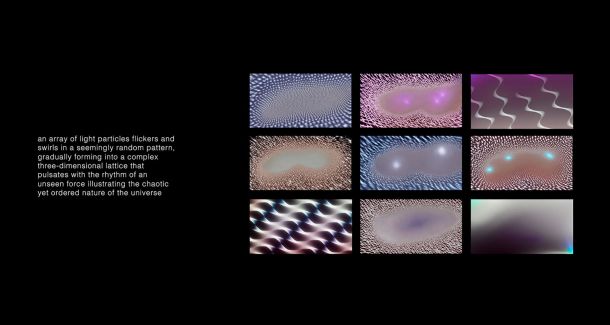A curatorial journey through synthetic landscapes
Marta Amorim
synopsis
Year
university
This work interrogates whether synthetic landscapes - born from algorithmic abstraction - can be "rewilded" through active human intervention. It explores how the human hand can navigate, select, and assemble AI-generated material into a meaningful structure while contending with unpredictable outcomes.
Marta Isabel Araújo Amorim highlights the complexity of curating generative algorithms, which operate through statistical inference, rather than by artistic or conceptual reasoning. The curatorial approach applied in this work was guided by the idea of constructing a synthetic visual landscape, selecting images that exist between microscopic organic structures and artificial formations. The process begins with initial textual prompts that reference abstract and subjective qualities, created through interactions with language. These prompts initiate iterative cycles of image production, during which the artist-researcher actively negotiates with the randomness of the system. Nonetheless, the resulting compositions remain devoid of inherent meaning until they undergo curatorial decision-making, an evaluative stage on what to retain or discard. These ambiguous compositions subtly evoke dynamics within nature’s generative processes while cultivating speculation and ambiguity, ultimately creating ways of seeing digital environments as fluid, interwoven ecosystems.

Marta Amorim is a visual artist whose practice focuses on the technological processes that create images, their underlying mechanisms and the visual language they produce. Her approach is experimental and involves the use of different devices, intentionally embracing error, unexpected deviation, and randomness as artistic material, frequently resulting in abstraction.
As a PhD candidate in Digital Media Arts at the University of Algarve and a researcher at the Research Center for Arts and Communication (CIAC), she currently investigates instruction-based generative artificial intelligence systems, exploring the aesthetic possibilities of synthetic abstract imagery within video art creation.
She holds a degree in Technological Chemistry from the Faculty of Sciences of the University of Lisbon, a Postgraduate Diploma in Contemporary Photography Discourses from the Faculty of Fine Arts of the University of Lisbon and has completed studies in Photography at Ar.Co Center for Arts and Visual Communication, and Multimedia Production at CENJOR.


